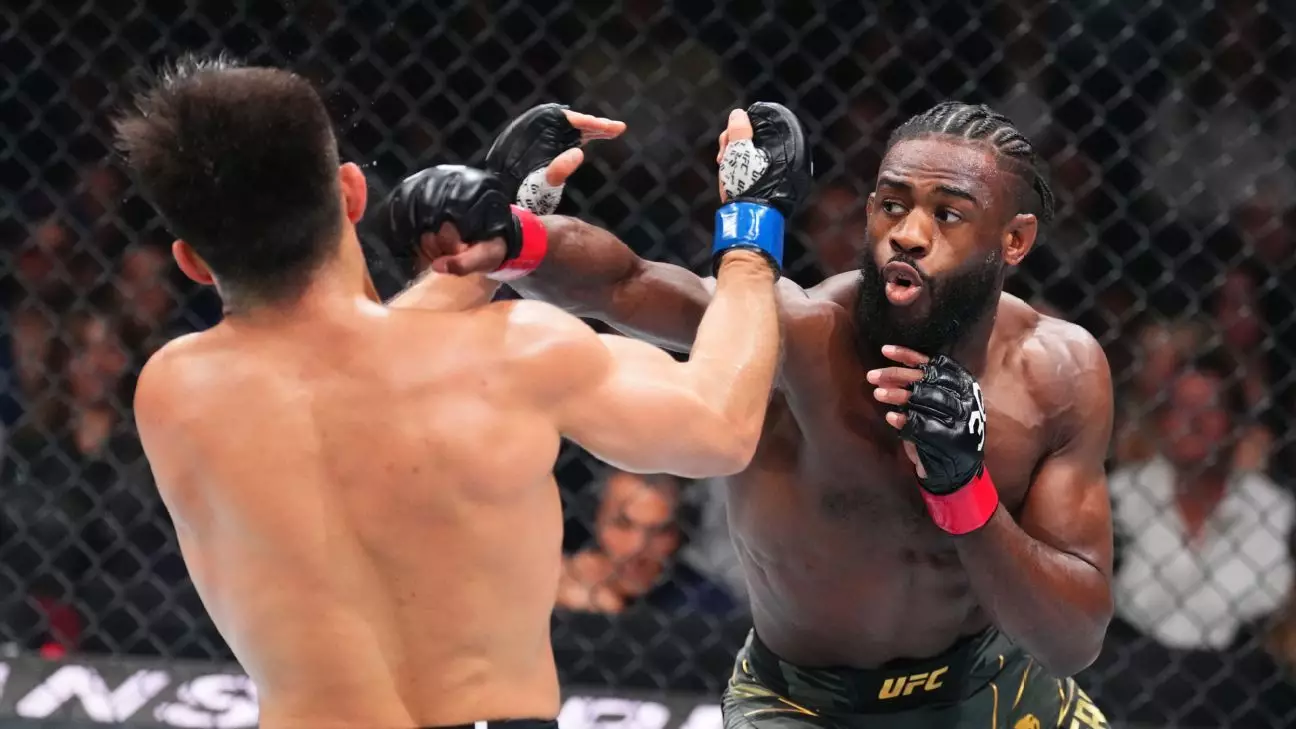Aljamain Sterling’s withdrawal from UFC 307 due to an injury has sent ripples through the MMA community. As a prominent figure in the sport, Sterling’s decision to step back from the octagon raises concerns regarding not only his health but also the implications for the featherweight division. Sterling was preparing to face the talented Movsar Evloev, and many fans were looking forward to this showdown. The bout would have marked his second appearance in the featherweight category after transitioning from bantamweight, a shift that followed his title loss to Sean O’Malley in August 2023.
The Injury: Details and Impact
In a personal YouTube update, Sterling provided insight into his unfortunate injury. He revealed that during a sparring session, he sustained a shoulder injury that has forced him to postpone his upcoming fight. Sterling shared that he had undergone stem cell treatment and had relied on the resources available at the UFC Performance Institute for rehabilitation. Despite his efforts to recover fully, he expressed that the situation escalated beyond his control. The injury is significant enough to sideline him temporarily, yet fortunately, it does not require surgical intervention, which could have derailed his career further.
Currently ranked as the No. 9 featherweight by the UFC, Sterling’s standing in the division could see volatile shifts depending on how the landscape evolves in his absence. He was coming off a victorious debut at featherweight against Calvin Kattar at UFC 300, which had hinted at a promising new chapter for him in the sport. Sterling’s ambition is evident; he aims to reschedule the bout with Evloev for December. However, given the fluid nature of injuries in combat sports, it remains uncertain if this timeline will hold.
For Evloev, who is presently ranked No. 6 in the featherweight division, the delay presents its challenges as well. He hasn’t fought since January 2023, when he bested Arnold Allen in a closely contested decision. This inactivity could hinder his momentum and affect his readiness for future high-stakes bouts. As a fighter known for his disciplined grappling and striking techniques, Evloev must now recalibrate his training and focus on the adjustments needed for a potential future fight with Sterling.
Sterling’s injury extends beyond personal consequences; it poses questions about the competitive fabric of the featherweight division itself. With emerging talents and seasoned fighters alike vying for title shots and rankings, injuries can create a bottleneck effect, affecting matchmaking and fighter progression. The UFC’s featherweight class is characterized by its depth, and the shuffle in rankings is a constant risk that fighters must navigate. As Sterling recuperates, he faces the constant challenge of not only reclaiming his position in the octagon but also re-establishing his legacy as a two-division contender.
Aljamain Sterling’s withdrawal from UFC 307 serves as a reminder of the unpredictability in mixed martial arts. While he focuses on recovery, the ripple effects of his absence will be felt throughout the division, affecting not just him and Evloev, but the overall dynamics of one of the UFC’s most competitive weight classes.


Leave a Reply